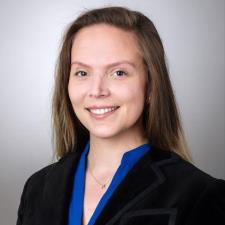
Ed M. answered • 04/06/16
Tutor
4.9
(40)
Help with grammar, French, SAT Writing, the TOEFL and ESL.
The only part I'm not clear and sure about is how you are supposed to use only one "Coordinating Adjective" since by definition a coordinating adjective has to occur with at least one other adjective and (sometimes) joined by a conjunction, like clear and sure. Moreover, the formula you give has the "Coordinating Adjective" directly following what will be the "Subject" of the independent clause (see below) and of course subjects are usually noun phrases, but most English adjectives premodify the nouns they describe, though occasionally even coordinate adjectives may postmodify noun phrases as in the title of the book and movie Sarah, Plain and Tall.
But apart from that, I think you can definitely make a complete sentence from all the other elements given in your formula in the order you give them, and as alluded to above, the second "Subject" and everything after it can make up a perfectly good independent clause. I'll give it a go with one clunky, contrived, out-of-context (<--three coordinating adjectives in a row) example, and I'll just leave the "Coordinating Adjective" element out of it for the reason above:
- While these rules where applicable cause hardship, many foster opportunity.
Subordinator: while
Subject: these rules
Relative Phrase: where applicable (Note: Since you designated this element specifically as a "Phrase" I made it as such, i.e., not a relative clause like where they are applicable.)
Active Verb: cause
Direct Object: hardship
Subject: many
Active Verb: foster
Direct Object: opportunity

Ed M.
O.K., thanks. Now I think I understand why in your original you wondered whether "another independent clause is needed in this sentence" because by definition a
conjunctive adverb does join two independent clauses, often (but not mandatorily) in the same written sentence. And a characteristic of a lot of conjunctive adverbs, which may explain the placement of the "Conjunctive Adverb" element after the second "Subject" in your corrected formula, is that they may function like a lot of "normal" adverbs, i.e., they may occur in various positions--including after a subject and before a verb like in your formula--in a clause.
I'm thinking of the quintessential conjunctive adverbs therefore,
however and moreover which indeed can join two clauses:
- I think; therefore, I am.
- He hesitated; however, he soon recovered his courage.
- They're idiots; moreover, they're homely too.
(Of course technically in each case the semicolon could be replaced by a period and the first letter of the conjunctive adverbs capitalized, thereby resulting in two separate sentences, and the comma after each introductory conjunctive adverb is often omitted.) And applying this to your formula, I believe that really the "Conjunctive Adverb" slot can be filled by words like these which however are functioning here not as conjunctive adverbs but as basic adverbs. Taking again my sentence based on your original formula, I believe we should be able to say instead While these rules where applicable cause hardship, many
however foster opportunity where however occurs in this "Conjunctive Adverb" position between the "Subject"
many and the "Active Verb" foster but again is not behaving like a true conjunctive adverb.
And possible objections to a sentence like this may be that in fact however is a bit redundant since the subordinator
while already signals the intended contrast between the content of both clauses, and also that
however should be set off by commas before and after it, which might make the adverb seem almost parenthetical and not a true element of the clause, though again in practice often such commas are simply not used.
Report
04/06/16
James B.
Thank you very much. This answers my question.
Report
04/17/16

Ed M.
Glad to hear that, and thanks for following up. We tutors who answer questions here appreciate that and students like you who do it.
Report
04/17/16





James B.
04/06/16